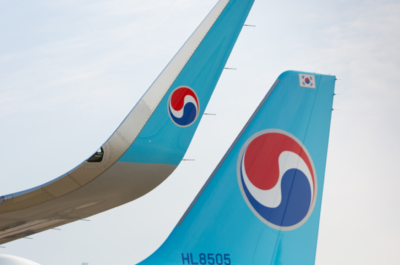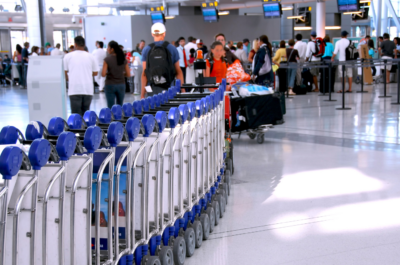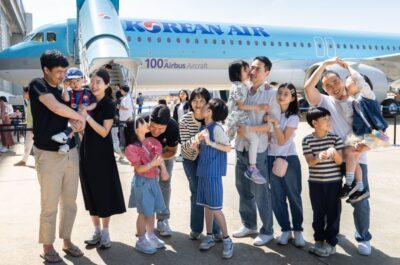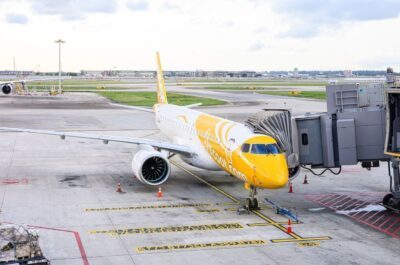Asia’s travel industry looks set for its first annual decline in passenger numbers since 2003, as the leaner economic outlook for 2009 bites in the region. The Singapore-based travel facilitator, which is owned by Sabre and a number of regional airlines, is forecasting a range of 7-9% decline in passenger booking numbers for the region. In a report issued on the website last week, Abacus International CEO and President, Robert Bailey said 2009 has all the hallmarks of being a watershed year for the Asian travel industry. The dramatic softening of demand in the latter half of 2008 has set the tone for 2009. “We believe many players in Asia’s travel industry will be stress-tested…
Asia’s travel industry looks set for its first annual decline in passenger numbers since 2003, as the leaner economic outlook for 2009 bites in the region. The Singapore-based travel facilitator, which is owned by Sabre and a number of regional airlines, is forecasting a range of 7-9% decline in passenger booking numbers for the region.
In a report issued on the website last week, Abacus International CEO and President, Robert Bailey said 2009 has all the hallmarks of being a watershed year for the Asian travel industry. The dramatic softening of demand in the latter half of 2008 has set the tone for 2009. “We believe many players in Asia’s travel industry will be stress-tested by the conditions the industry will encounter in 2009 and the winners will be those with underlying capital strength, the smartest and most nimble strategies, and the strongest customer relationships,” Mr Bailey said.
In many ways the market environment is actually more challenging than the temporary eclipse of travel demand seen during previous events such as the 9/11 event, SARS, and the Asian Tsunami. “The economic and market issues are more systemic and are impacting on a broader range of players within the travel sector and wider economic environment. On top of this, events such as the airport blockade in Thailand and violence in Mumbai have further disrupted travel patterns at a time when the industry can little afford it,” he said.
Asian GDP growth is projected to shrink to 3.0% in 2009 according to the Economic Intelligence Unit (EIU). Contributing to this fall are the two erstwhile growth engines of the travel industry; India (where growth has dropped from 9% in 2007 to 6.2% in 2009), and China where EIU is predicting the 9.1% growth of 2008 to cool to 6.0% in 2009.
As a result, Asia’s travel industry looks set for its first annual decline in passenger numbers since 2003, as the leaner economic outlook for 2009 bites in the region. Abacus is forecasting a range of 7 – 9% decline in passenger booking numbers for the region.
Impacts and implications
Abacus expects that the business pressures which are now being experienced at every point in the travel value chain will accelerate the already rapid rate of change in the industry. “Nascent trends will become urgent agendas – everyone from airlines and hotels to travel agents and tourism operators will be looking for ways to minimise costs, build new revenue streams and increase the rate of innovation for new products for an increasingly cost-conscious travelling public and business traveller,” says Mr Bailey.
It’s likely to be the case of that necessity will drive innovation, as travel agents rapidly explore new revenue opportunities and business models in response to the business pressures. “This could include everything from targeting emerging niche markets such as eco/rural tourism to a greater emphasis on non-air in the selling mix such as a larger emphasis on hotels, insurance and rental cars and will likely include an emphasis on re-skilling travel agency staff to take on new challenges as, for example, Chan Brothers in Singapore has embarked on,” Mr Bailey said.
Airline outlook
Passenger booking numbers started very promisingly in 2008, in what was effectively a ‘year of two halves’. By year’s end, the combination of fuel price spikes, trouble in the banking and financial sector and emergencies in Thailand and India had combined to knock back booking numbers in both the leisure and business categories. IATA reported a 9.7% year-on-year decline for international passenger travel in Asia Pacific for December 2008.
For the whole of 2008, Abacus total passenger bookings were down 7% on 2007. In North Asia, bookings were down 8%, led by a rapid cooling in China despite the Olympic Games. In fact the passenger traffic growth slowed to 3.3% from 16.3% in 2007, according to Centre for Asia Pacific Aviation’s January report.
In South Asia, some bright patches such as Pakistan, a booming Kazakhstan, Myanmar, Thailand and Cambodia all recorded good year-on-year gains in free and independent (FIT) bookings.
Looking ahead, the International Air Transport Association (IATA) is currently projecting that Asia Pacific Airlines will lose a combined US$1.1 billion in 2009 and predicting a rough ride ahead for regional airlines.
In order to keep their load factors high, many airlines in the region such as Jet Airways, Malaysian Airlines and Thai Airways have responded with strong fare discounting. Combined with the recent removal or reduction of fuel surcharges by airlines such as Cathay Pacific and many others, these moves are tempting travellers back on to airplanes.
“Many airlines are also curtailing unsustainable routes such as Singapore Airlines with its Penang flights and Thai Airways’ Bangkok-Athens route and, where possible reducing their orders for new aircraft,” Mr Bailey said. “Ultimately, airlines can either try to grow demand and/or shrink capacity. Both instruments are in full use with the combination of fare cutting and flight and fleet reductions.”
More mergers, code-sharing and possibly greater investment by regional Governments in airlines are all possibilities over the next two years. “The aviation industry as a whole can expect a stronger hearing from Governments in its case to remove excessive regulations and eliminate political obstacles to a lower-cost environment for aviation,” said Mr Bailey.
For example the ASEAN Open Skies agreement is expected to go into effect this year, and the increased air links between new ASEAN destinations are likely to boost traffic. The Singapore to Kuala Lumpur sector, for instance, is now served by both low cost airlines and flag carriers, and the Low Cost Carriers are opening a flurry of new routes such as the new Singapore to Kota Kinabalu route by Jetstar Asia – which are capable of developing new market niches.
Traveller trends
Tourism arrivals are slipping in many countries in the region. For example, Singapore recorded a 1.6% drop year-on-year against 2007 and hotel occupancy rates down by 6% for the year in a recent release by Singapore Tourism Board. “Recent events in Macau have raised some questions in the industry about the role of Singapore’s two Integrated Resorts in kick-starting its new tourism future. These are massive and well thought out projects surrounded by large populations and the reality of their positive impact will become more apparent as the launch dates of 2009 and 2010 approach,” Mr Bailey said
Malaysia is projecting a 9% drop in tourist numbers to 20 million foreign visitors in 2009 this year, according to its Deputy Premier Najib Razak. A range of assessments in the industry have Thailand pegged as holding steady in 2009; however this is dependent on no further escalation of political disputes in the country.
Countries adjacent to Thailand such as Cambodia, Laos and Vietnam have been growing strongly in recent years with growth rates of 8 -18% however they are likely to flat-line or slip into negative territory in 2009. While Cambodia’s Tourism Minister Thong Kohn reported 8% visitor growth in 2008, this was the first time the growth in visitor numbers had slipped below 18% since 2003 in the attraction-rich country. Meanwhile neighbouring Vietnam is steeling itself for a 20-30% fall in 2009 (VNAT projections).
Indonesia stands out as something of a beacon for the industry in South East Asia. A resurgent Bali continues to shine amid a 16% year-on-year surge for all visitors to the country in what was billed as Visit Indonesia Year. Around 967,000 tourists flew in to the resort centre during the second half of 2008, up almost 25% according to the Indonesia Tourism Report for Q4 of 2008. Indonesia’s Ministry of Culture and Tourism is predicting similar levels of growth for the Republic in 2009.
In a November 2008 survey Abacus found travel agents are predicting a key trend of shorter trips in the region (short getaways) instead of long haul as people watch their budgets. This has been borne out by PATA figures showing a 45% increase in bookings between Indonesia and Malaysia in Q3 2008, increased cross-straits traffic between Taiwan and China and a 9% uptick in China to Hong Kong traffic.
“2009 will also be a year of concerted action by the National Tourism Offices to get people moving. We expect an intensification of branded national campaigns, combined with tempting discount offers as countries such as Hong Kong, India, Malaysia, Singapore and Thailand battle it out for the tourist dollar,” Mr Bailey said.
Travel distribution trends
Online travel booking is on a roll with an estimated 11% Compound Average Growth Rate (CAGR) in online bookings in Asia Pacific over the next four years according to Abacus figures. Abacus expects this to continue for the foreseeable future as more Asian travellers gain access to the tools to look and book online. In fact the volume of bookings made by Online Travel Agent’s (OTAs) connected to the Abacus GDS increased by over 20% year-on-year. “We are approaching the turning point where the internet can no longer be regarded as an emerging channel, but has now earned its place as a key channel in the sales and marketing strategy of all significant players in the industry,” Mr Bailey said.
For travel agencies which have yet to step into the online distribution arena or would like to further enhance their online booking capabilities, Abacus has launched a suite of online solutions, Abacus WebStart and Abacus WebCreate to enable even the smallest travel agencies to stake their claim in cyberspace.
While online bookings are now thought to account for around 11% of total airline bookings in Asia Pacific (Eye for Travel Asia Pacific Online Travel Report 2007), traditional ‘brick and mortar’ travel agents continue to be a major force in travel distribution. “In all our conversations across our network of over 15,000 travel agency locations we are picking up a strong emphasis on travel agency productivity and a push to reduce costs through greater automation, use of productivity tools etc. 2009 will be the year of the leaner and meaner travel agency.”
As a GDS, Abacus is putting the lion’s share of its new product development into meeting this need. It has recently launched a series of new and enhanced applications that automate the operations of travel agencies and reduces the complexity of day-to-day processes. Enhancements to automate the refunds process have also brought cost savings and improved productivity to travel agents. Also in the pipeline is a solution that automates the ticketing process to speed up the processing of PNRs and issuing ticket requests.
Among the new revenue opportunities travel agents are tapping into is insurance. For example, the value of India’s travel insurance market is expected to almost triple over the period 2005 to 2012, with an estimated worth of US$236 million in 2009 (Euromonitor International). Malaysia, Singapore and China should enjoy year on year growth of 5-7% in 2009, and the South Korea is snowballing with projected 15% growth by Euromonitor International. Abacus saw double digit growth in insurance bookings for the first half of 2008, with a slight drop in the second half. An increased number of Abacus-connected travel agents are expected to tap into this growing market in 2009.
Asia will see continuing pressure by the airlines to roll back travel agency commissions; but the progress will be muted, at least for some time, by certain unique characteristics of the Asian market; diverse currencies, visas and the complexity of travel. This was exemplified by the recent experience of India where collective action by travel agents reversed an attempt by several major airlines to cut the commissions.
Another recent trend in the United States has been the rapid rise of home-based travel agency consultants as mainstream agencies have re-trenched over the past year. We are yet to see this trend in any significant way in Asia; but it is possible that the model gains some traction here over the years ahead as the tools of travel booking become more portable and less tied to the office.
“Corporate travel may be down, but Corporate Travel Management is certainly not out. For the first time in many years, perhaps ever, travel has become a boardroom issue as major companies review their travel policies, preferred suppliers and strive for smarter procurement,” Mr Bailey said. “2009 may be a tough time for many in Asia’s travel industry; but is not without its opportunities. Many parties are playing a longer game – enduring this challenging period with a view to positioning themselves to capitalise on the recovery as it occurs.”
While there is a lot of rhetoric about the deteriorating fundamentals of the Asian economies; the time frames are relatively short-term. “Not even the most negative appraisals have suggested that Asia has anything but great fundamentals for the longer term with its many developing economies, unique cultures and environments, and the dynamism of its people. These are the factors we must not lose sight of when the going gets tough,” Mr Bailey concluded.
Theodore is the Co-Founder and Managing Editor of TravelDailyNews Media Network; his responsibilities include business development and planning for TravelDailyNews long-term opportunities.







































































